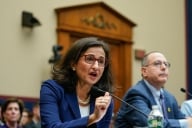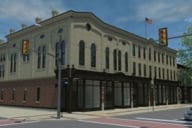You have /5 articles left.
Sign up for a free account or log in.
It’s practically obligatory for aspiring college presidents coming from the academic sector to profess their true love for their former work as faculty members and, at liberal arts colleges, their hope to return, one day, to the classroom. To hear candidates talk, you would think that all of us are just biding our time in administrative work, waiting for the day when we can return to the classroom full-time.
And thus it was for me as a candidate over two years ago. I had always taught and published as a dean, despite the challenges to the schedule, and I had every intention of continuing that work as a president. Ten years ago, I had reluctantly left my role as an English professor for administrative work, and, though I’ve discovered a deep love for administrative work and the opportunity to move an institution forward, I’ve never really thought of myself as anything other than an English professor on a kind of long-term furlough.
So I was pleased to teach my first class at Alma this past May, a four-week environmental literature class with a group that combined English majors with seniors majoring in other disciplines who had already attended their graduation ceremony and took the class to complete their humanities requirements.
At Alma, our May classes are experiential in nature and so, alongside our readings of Thoreau, Rachel Carson and Bill McKibben, we traveled across Michigan, touring the largest wind farm in the state, a Superfund site and a thriving local organic farm. The capstone was a kayaking tour of the Les Cheneaux islands in Michigan’s Upper Peninsula, where we paddled 25 miles and camped on the uninhabited Government Island for two nights.
The experience was a joy since it allowed me to share my passions for kayaking and for the outdoors with our students. Most of the students had no kayaking experience, and it was a pleasure to see them take to the boats so quickly (we only lost one overboard, in our first five minutes, and we fished him out and brought him to shore in short order!). Quite a few had no camping experience, so a night in the woods was just the thing for them as we talked of Thoreau’s time at Walden Pond.
We paddled chill, wind-swept water past the Aldo Leopold Nature Preserve the very week we were reading Sand County Almanac, Leopold’s paean to the vanishing American wilderness. I can think of no better way for students to contemplate Leopold’s wrenching sense of loss -- “All conservation of wildness is self-defeating, for to cherish we must see and fondle, and when enough have seen and fondled, there is no wilderness left to cherish.” -- than by visiting these same waters he knew as a boy in his Michigan summers.
A month of teaching was just what I needed at the end of my first two years as president. In one sense, I suppose, it was a break from my own time in the (administrative) wilderness. I was reminded once again that my administrative work draws directly from the work I formerly did as a faculty member. And I was reminded as well that what we do at liberal arts colleges is hard work: our faculty, at their best, engage our students’ deepest passions, working alongside them as they discover the deepest connections of our traditions to their own lives and aspirations.
***
When I started this blog two years ago, my intent was to reflect on the challenges of the job of a new college president and on the difficult work before liberal arts colleges in the changing landscape of American higher education. It has been a remarkable journey; we have launched strategic and master plans and have had important conversations about enhancing the student experience and on the future of higher education. I am still learning every day on this job and my passion for the liberal arts is stronger than ever. But I am no longer a new president, so I think it is time for this blog to take a hiatus.
With the blessing of my editors at IHE, I’ve invited several fellow presidents from liberal arts colleges across the Midwest to continue Alma Mater, focusing on the various challenges for colleges like ours in these difficult days for higher education. Our blogs will begin with the new academic year.






